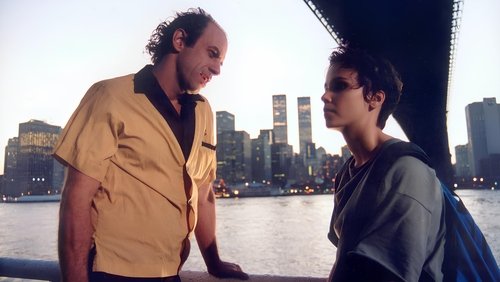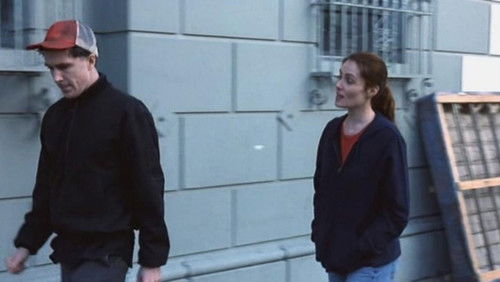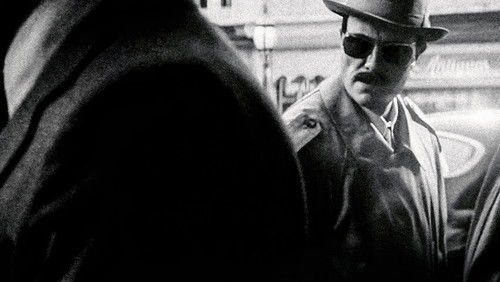Signature Move (2017)
67KSignature Move: Directed by Jennifer Reeder. With Fawzia Mirza, Shabana Azmi, Sari Sanchez, Audrey Francis. Zaynab, a thirty-something Pakistani, Muslim, lesbian in Chicago takes care of her sweet and TV-obsessed mother. As Zaynab falls for Alma, a bold and very bright Mexican woman, she searches for her identity in life, love and wrestling.
“Signature Move screened at the 2017 Vancouver Queer Film Festival (August 10-20) and is billed as an indie comedy-drama, but the filmu0026#39;s writer and leading actress Fawzia Mirza, who attended the screening, called it a u0026quot;romantic comedy Muslim melodrama.u0026quot; The filmu0026#39;s protagonist, Zaynab (a Pakistani woman living in Chicago) starts seeing Alma (a bright, exuberant Chicana woman). Zaynabu0026#39;s relationship with Alma stumbles along in fits and starts: the next time she sees Alma after their first drunken hook-up, Alma realizes that Zaynab doesnu0026#39;t remember her name, and Zaynab says, u0026quot;Gimme five to choose from.u0026quot; After being given five options, she picks wrong. A client of Zaynabu0026#39;s canu0026#39;t afford to pay her for her services as an immigration lawyer and asks if she accepts u0026quot;other forms of payment,u0026quot; which means wrestling coaching, and she ends up training for a ladies luchador match. Meanwhile, her mother watches the world through binoculars from her living room armchair and tries to find a suitable husband for Zaynab; she tells her that she can go to the gym, but says, u0026quot;Donu0026#39;t do too many crunches. You want to marry a man, not look like one.u0026quot;u003cbr/u003eu003cbr/u003eThe concept of u0026quot;coming outu0026quot;-an individual announcing their homosexuality to their loved ones and the world as a whole-is inherently flawed. Gay folks decide whether to disclose their sexuality every day: when a cashier asks what theyu0026#39;re up to that weekend, when friends ask who theyu0026#39;re seeing and, of course, when their parents ask to meet their u0026quot;friend.u0026quot; The idea of being out once and for all, as if itu0026#39;s a band-aid to be ripped off, is an impossible ideal, and an inherently white, Eurocentric one, too. In Signature Move, Zaynab is not out, and Alma is. This causes tension as their relationship grows and the film uses sights, sounds and well-timed cuts to strike a dichotomy between the two halves of Zaynabu0026#39;s life and the growing chasm that separates them. The way that the film deals with this makes it infinitely more nuanced than your standard East-meets-West romantic comedy, as it questions the tropes weu0026#39;ve come to expect from films starring mixed race leads, where South Asian culture is seen as oppressive and backwards and Western culture as enlightened and forward-thinking.u003cbr/u003eu003cbr/u003eZaynab is closeted, but as Mirza herself said in an extremely charming Qu0026amp;A after the show, the point of the film is not to present Almau0026#39;s way of life as more correct than Zaynabu0026#39;s. Itu0026#39;s the opposite. u0026quot;We have to let go of thinking that thereu0026#39;s one right way to be,u0026quot; Mirza told the audience in a discussion about the white, Western concept of coming out, and her own experiences with her mother. u0026quot;Itu0026#39;s about finding better words and language to talk about the gay experience.u0026quot;u003cbr/u003eu003cbr/u003eOn another note: Signature Move not only finds better language to talk about ethnocentrism and coming out, but to portray the lesbianism as a whole. It lets vibrant, lesbian womanhood exist in a way that often gets polished away for straight audiences-itu0026#39;s sweaty, awkward, funny and unapologetic. Even if youu0026#39;re not interested in the film for its aforementioned contributions to queer South Asian cinema, watch it because itu0026#39;s extremely well made. Itu0026#39;s full of the little things that happen in real life: how your hair gets messed up as you get progressively more drunk, how your lips smush up when you kiss. Zaynabu0026#39;s mother has a band-aid on her thumb for most of the film. The set design is detailed and expressive, especially the bedrooms, packed with trinkets and posters. Zaynabu0026#39;s apartment is always filled with the sound of her motheru0026#39;s Pakistani television dramas, which creates a tangible feeling of home. This film was the one I was most excited to see at this yearu0026#39;s VQFF, and I canu0026#39;t recommend it enough. Itu0026#39;s one of those films you want to thank for existing.”









